Drag Me Down to Kalakshetra
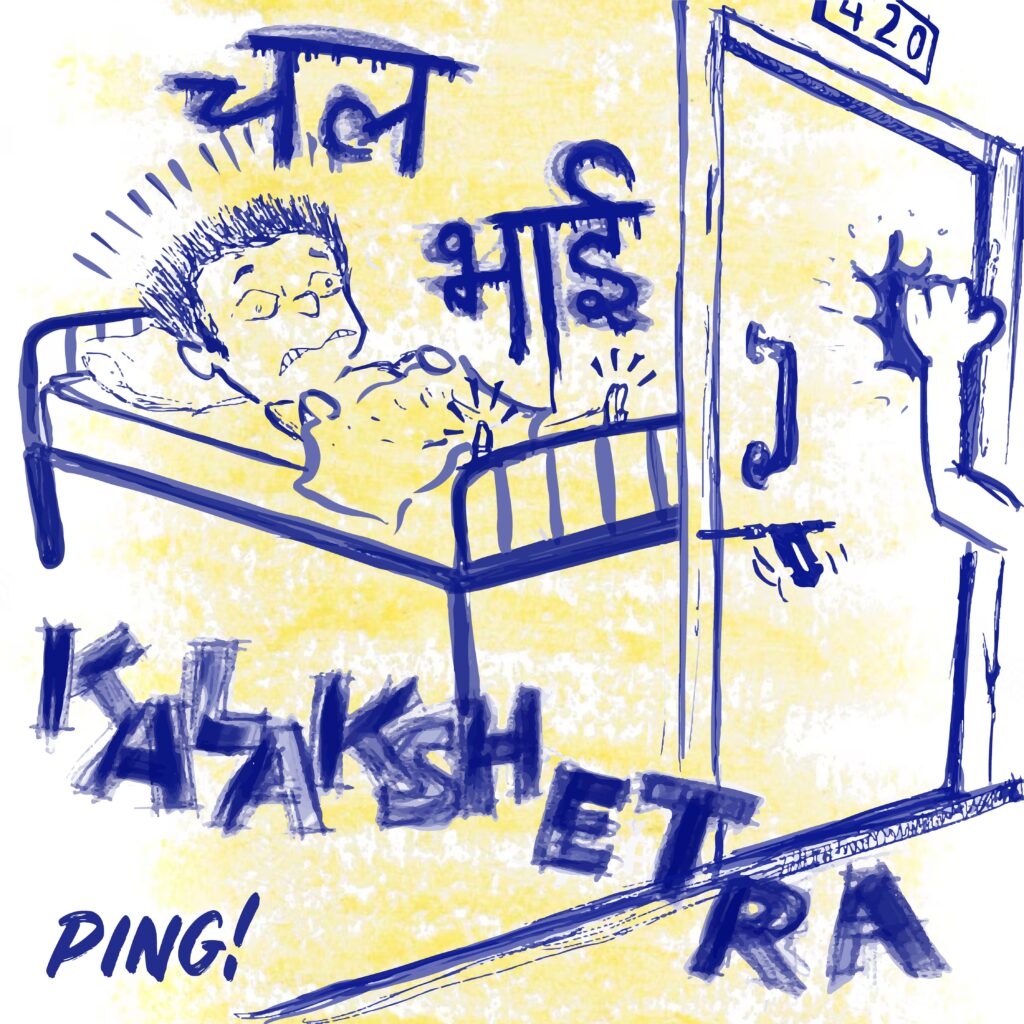
Imagine sleeping peacefully in your room, having nightmares about the upcoming assignments. Totally normal, right? But then, the clock strikes twelve. There is a knock on your door. Not wanting to get up, you roll over, ignoring that knock. As time goes by, the knocks grow louder. You groan with annoyance but are still too sleepy to get out of bed. A few moments later, the sound stops. You sigh happily as your eyes droop, the sleep you have yearned for overtaking you…
BAM!
You jump awake, startled by the loud noise. You hold your breath as the scene unveils in front of you. Three more blows later, the door flies open. You see two silhouettes blocking the door. If they had been dressed in blue uniforms and carrying pistols, they could have passed for the NYPD police officers you see in the movies. You gulp, knowing what is about to come next. One of them nods at you, “Come on. It’s Kalakshetra time.”
Ah, Kalakshetra. While it is not as dramatic as described above, it does send a shiver down your spine, eh? Quite well-known and feared among the students, Kalakshetra is when ‘Daya Darwaaza Tod Do’ perfectly sums up the scene outside a Faccha’s room in Bakul. It is the time when seniors assert dominance over the freshers. But one question persists: Why does it have to be this way?
From the perspective of a fresher, the mere mention of Kalakshetra is petrifying. The stories shared by fellow batchmates only add to the fear, causing many to avoid Kalakshetra work altogether. A single glance from a senior can lead to hours of toil, often ending very late at night. While some broke a sweat for the Felicity decorations, most Bakul Nivasis spent the nights playing a dangerous game of hide-and-seek, the hideout places varying widely – from JC to the workspace to <redacted>. The Parijat residents, however, did not go through such a rigorous CID phase. As we like to call it, they comparatively had it lite.
The UG2s, on the other hand, were waiting eagerly for the freshers to return from their semester break. As soon as the facchas returned to campus, the UG2s were delighted to be removed from the spotlight as the focus shifted to their juniors.
But considering the point of view of the Felicity Team, it was frustrating for them too. Their primary objective was to get things done as quickly as possible. They understood the difficulties of organizing Felicity and willingly took on the task themselves. Already busy with their coursework, the added responsibility of the organization of Felicity, without much assistance from the authorities, was a lot to deal with. The limited funds allocated by the institute and the constant criticism added to their burden. So it was no surprise that the seniors got frustrated, leaving juniors as the only option for completing the laborious tasks associated with Kalakshetra. Expecting freshers to contribute their share, some seniors even offered treats to those who willingly participated in Kalakshetra. However, all this hard work did indeed pay off when the final products turned out magnificent.
Having said all that, it is worth considering whether the enforcement of Kalakshetra in such an authoritative manner is necessary. Being evasive only invites wrath and exacerbates the vicious cycle of fear and avoidance that perpetuates the negative perception of Kalakshetra among freshers. This cycle can be broken by changing how Kalakshetra is imposed upon the freshers. If it were open to free will, students might have a more positive outlook and be more willing to participate. Enthusiastic participation and genuine enjoyment of the activities would lead to a more positive experience for all those involved, and the stories narrated by freshers about Kalakshetra would no longer be tinged with horror.
Now, before we get any more Dayas at our doors, we bid you adieu.
*quietly tip-toes out of the Bakul Warehouse*

 Cleaning up the Mess?
Cleaning up the Mess?  The Mess-y Situation
The Mess-y Situation 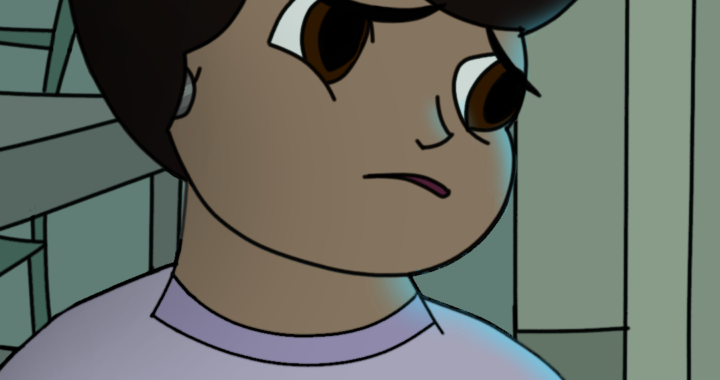 Qu’ils mangent de la grenouille! (Let Them Eat Frogs!)
Qu’ils mangent de la grenouille! (Let Them Eat Frogs!)  Tale of Two Cheenties
Tale of Two Cheenties 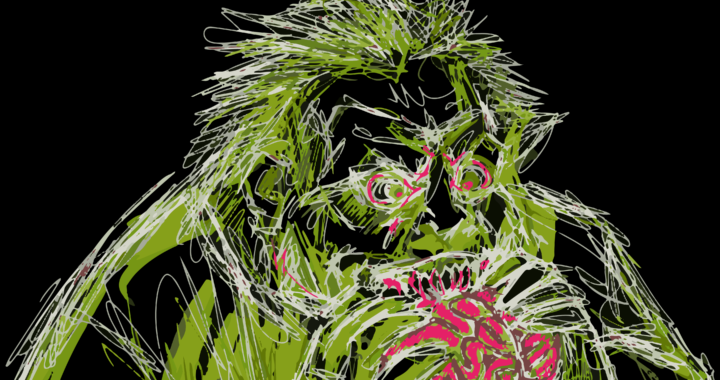 Peace of mind.
Peace of mind.  Boats and Valorant
Boats and Valorant 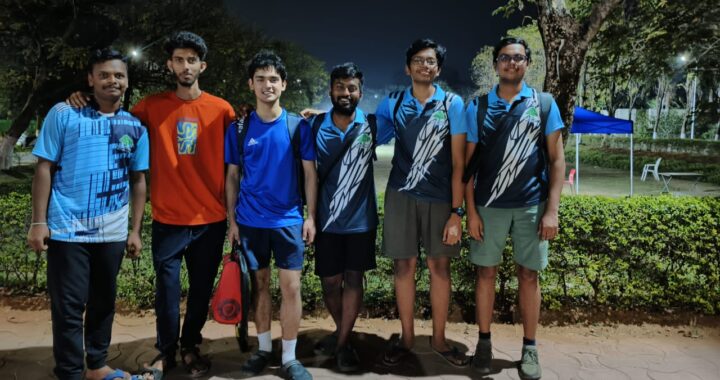 A perspective on sports in IIIT
A perspective on sports in IIIT 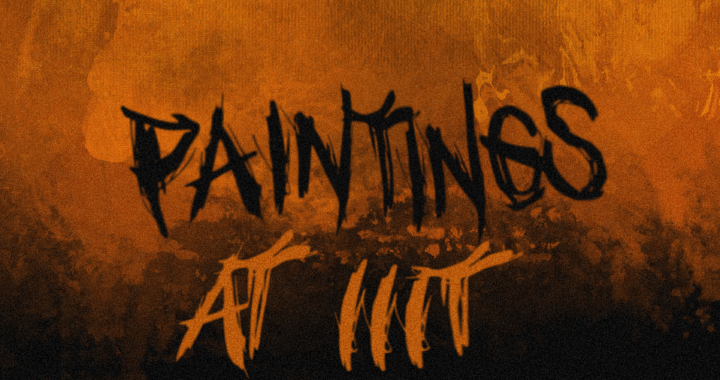 Paintings of IIIT
Paintings of IIIT 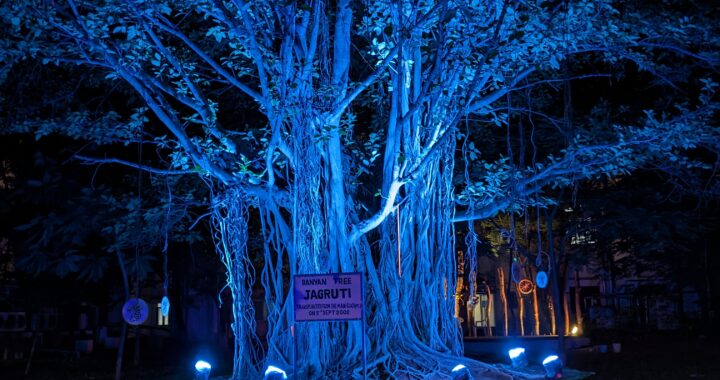 The Tale of Jagruti
The Tale of Jagruti